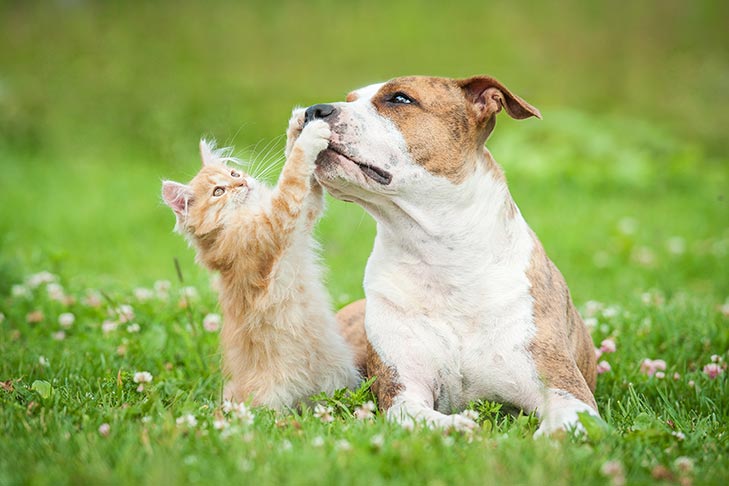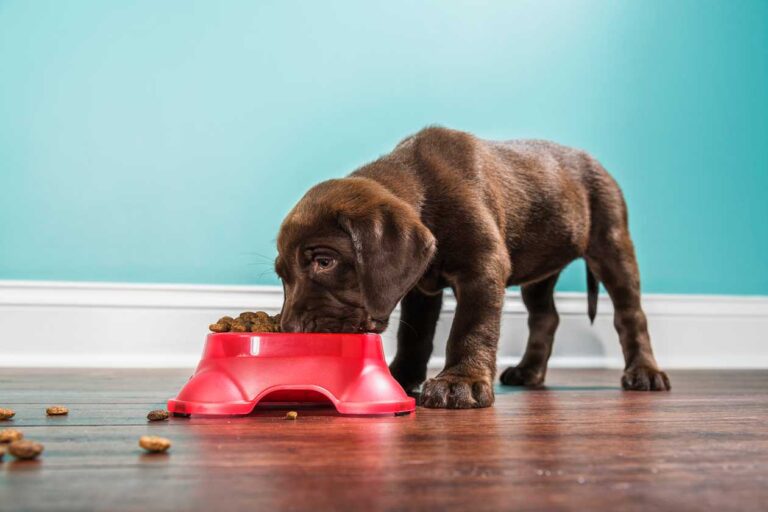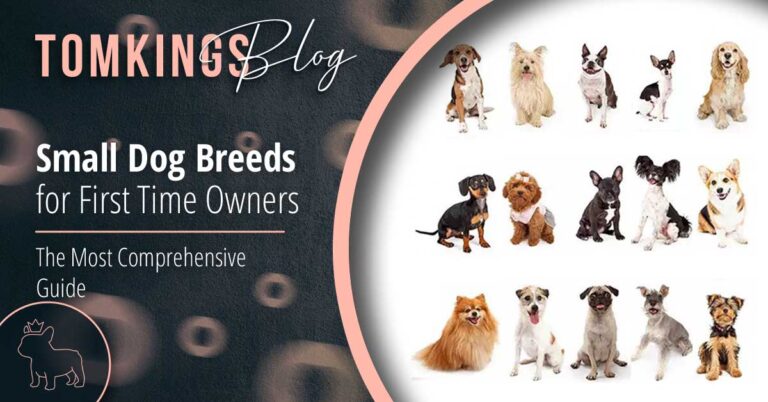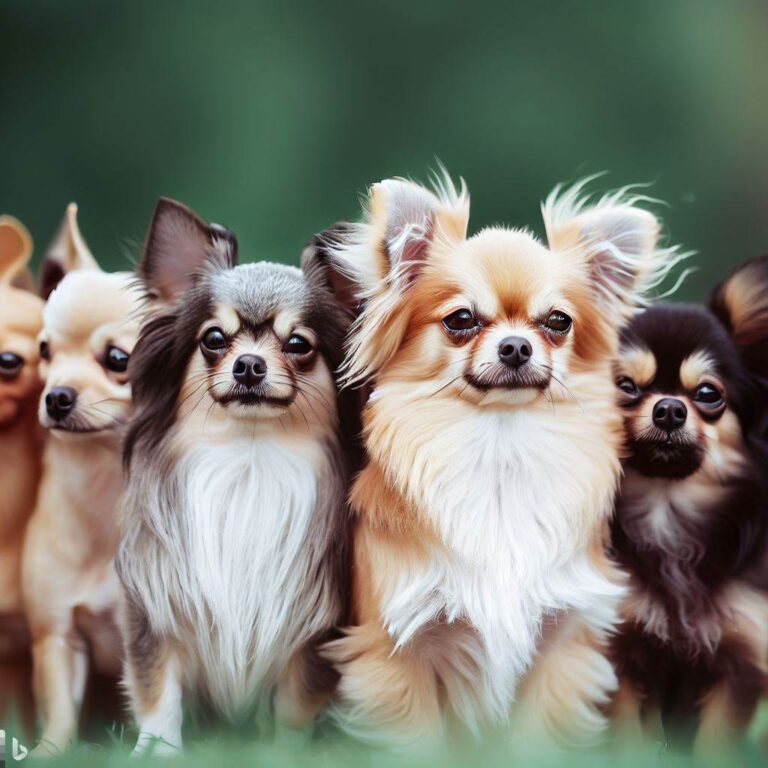Small Dog Breeds: Pros and Cons
Last Updated on May 7, 2024 by Petpalace54
Small dog breeds have their advantages and disadvantages. They are easier to transport, can make excellent companions, & can live longer.
However, they can be less social, louder, more fragile, less active, and harder to train than larger dogs. In addition, small dogs are susceptible to certain health issues such as patellar luxation and intervertebral disk disease. Despite their downsides, small dogs continue to be a popular choice for pet lovers due to their adorable looks & portability.
Below, we’ll discuss Small Dog Breeds: Pros and Cons & more important issues as well. Whether you choose to adopt a small dog or a larger one, it’s important to consider your lifestyle and the amount of care and attention you can provide.
Table of Contents
Pros Of Owning A Small Dog
Small dogs can make wonderful pets, especially for those who live in small living spaces, have limited mobility, or simply want a furry companion to take with them wherever they go. Below are some of the main benefits to consider when thinking about owning a small dog:
Easy To Travel With
Small dogs are undoubtedly easier to travel with than larger breeds. They are much more portable and often allowed in more places, such as hotels or on flights. Even a long road trip can be comfortable with a small dog in tow.
Lower Food And Maintenance Costs
Feeding a small dog is definitely less expensive than feeding a larger breed. Additionally, grooming and maintenance costs tend to be lower for small dogs, as they require less food & generally fewer baths or grooming sessions.
Suitable For Small Living Spaces
If you live in an apartment or a small home, a small dog is probably the perfect choice for you. Unlike larger breeds, small dogs can be happy and comfortable in small living spaces, and they usually do not require a large yard to exercise in.
Good Companionship
Small dogs are often very affectionate and are great companions for those who live alone. They also tend to bond quickly with their owners and can provide a lot of love and emotional support.
Easy To Train
Small dogs can be very intelligent and easy to train. They tend to pick up on commands quickly and are often eager to please their owners. This makes them great pets for families with young children.
Cute And Affectionate
Small dogs are often considered cute & can be fun to dress up or carry around in a pet carrier. They can also be very loving and affectionate towards their owners, providing a lot of laughter, love, and joy.
Less Intimidating For Children
Small dogs can be less intimidating for children than larger breeds, making them great pets for families with young kids. Children can easily interact with small dogs, & they are less likely to be scared or overwhelmed by their size.
Overall, owning a small dog can be a wonderful experience. They are easy to care for, can provide great companionship, & are perfect for those who live in small living spaces. Whether you are looking for a furry companion to take on your next road trip or simply a loyal friend to keep you company, a small dog might just be the perfect choice for you.

Credit: www.dogster.com
Cons Of Owning A Small Dog
Small dogs can be more fragile and require extra care when handling, petting, and grooming. They can also be less social and more prone to being loud. However, small dogs are easier to transport, cost less to feed & make great companions.
Fragility And Prone To Injuries
Small dogs, due to their tiny size, are prone to injuries, & even minor accidents can lead to severe injuries. They are also fragile and thus require extra care when handling, especially around children.
Tendency To Bark Excessively
Small dogs have a tendency to bark excessively, often at anything and everything that moves around them. This can be especially annoying to neighbors, & it can also cause a disturbance to your household.
May Display Aggressive Behavior
Some small dog breeds tend to be aggressive and may show hostility towards strangers & other animals. They are known to become overly possessive and may nip or bite to protect their territory.
More Susceptible To Health Problems
Small dogs tend to suffer from various health problems, which can be due to their genetic makeup or poor breeding. They may have joint and bone problems, heart disease, & dental problems.
Require Extra Care During Grooming
Small dogs require extra care when it comes to grooming, as they are more prone to tangles, matting, & skin irritations. They need regular grooming to maintain their coat’s health and cleanliness.
Difficult To House-train
House-training small dogs can be challenging, as they have small bladders and require frequent trips outdoors. They may also habitually use their bedding or other areas of the home as their bathroom.
May Suffer From Separation Anxiety
Small dogs tend to form strong bonds with their owners & become anxious when left alone for long periods. This can lead to destructive behavior and excessive barking.
Less Outdoor Exercise
Small dogs are less likely to get enough exercise, as they do not require as much physical activity as larger breeds. Lack of exercise can lead to weight gain, which can lead to health problems.
In conclusion, while owning a small dog can have its benefits, it is essential to weigh the cons before making a decision. Small dogs require extra attention and care, and they may develop various health issues. Owners should be prepared to train and socialize their pets and provide them with adequate exercise & grooming to ensure their health and happiness.
Health Issues In Small Dog Breeds
Small dog breeds can be adorable and make great companions, but they also come with a few health issues. These may include patellar luxation, intervertebral disk disease, pancreatitis, brachycephalic airway syndrome, and ectropion. It’s important to weigh the pros and cons before deciding to bring a small dog into your home.
Health Issues in Small Dog Breeds
Small dog breeds are cute and cuddly, and they often win our hearts with their adorable looks and playful nature. However, small dogs are prone to certain health issues that you need to be aware of if you plan to adopt one as a pet. In this section, we will discuss the pros and cons of small dog breeds, focusing on the subheading of health issues.
Patellar Luxation
Patellar luxation is a common orthopedic condition that affects the kneecap of small dogs. It occurs when the kneecap gets dislocated from its natural position & slips out of the groove of the thigh bone. This condition can cause pain, limping, and difficulty in walking. Small dogs such as Chihuahuas, Yorkshire Terriers, and Pomeranians are more susceptible to this condition. To prevent patellar luxation, pet owners should ensure their dogs maintain a healthy weight & avoid excessive jumping and running.
Intervertebral Disk Disease (IVDD)
Intervertebral disk disease is a spinal condition that results from the degeneration of the cushioning disks between the vertebrae. Small dog breeds such as Dachshunds, Corgis, and Shih Tzus are more prone to this condition. IVDD can cause pain, hind limb paralysis, & even death in severe cases. It is essential to diagnose the condition early and provide appropriate treatment, which may include surgery, rehabilitation, and medication.
Pancreatitis
Small dogs are also more prone to pancreatitis, a condition that occurs when the pancreas becomes inflamed and fails to function correctly. This condition is often caused by a diet that is high in fat and can cause vomiting, abdominal pain, & diarrhea. Breeds such as Miniature Schnauzers, Yorkshire Terriers, and Cavalier King Charles Spaniels are more susceptible to pancreatitis. To prevent this condition, it is important to provide a healthy & balanced diet that is low in fat.
Brachycephalic Airway Syndrome
Brachycephalic Airway Syndrome is a condition that affects small dogs with short snouts, such as Pugs, French Bulldogs, and Boston Terriers. This condition occurs due to the narrowing of the airways, which can cause breathing difficulties, snoring, and even collapse. To prevent this condition, it is important to maintain a healthy weight & avoid vigorous exercise in hot or humid weather.
Ectropion
Ectropion is a condition that affects the eyelids of small dog breeds such as Basset Hounds, Bloodhounds, and Bulldogs. This condition causes the lower eyelids to sag and turn outward, which can lead to eye infections, irritation, & even blindness. To prevent this condition, it is important to seek treatment early and maintain good eye hygiene.
In summary, small dog breeds can be adorable and fun companions, but they are also more prone to certain health issues. As a pet owner, you must be aware of these conditions and take appropriate preventive measures to ensure your furry friend stays healthy & happy.

Credit: pawsindia.com
Choosing The Right Small Dog Breed
Choosing the right small dog breed involves considering the pros and cons of owning a small dog. Smaller dogs are easier to transport and can be excellent companions, but they can also be more fragile, less active, and harder to train.
It’s essential to find a breed that fits your lifestyle and personality.
When it comes to choosing a small dog breed, there are many factors to consider. Small dogs can make great pets for families, seniors, apartment dwellers, and first-time dog owners. However, there are also some downsides to owning a small dog, such as health issues and a need for attention. Here are some pros & cons of small dog breeds, as well as factors to consider when choosing the right breed for you.
Factors To Consider
Before choosing a small dog breed, it’s important to consider factors such as your lifestyle, living situation, & activity level. Some things to consider include:
- Size and weight
- Activity level
- Temperament
- Grooming needs
- Training requirements
- Health issues
Best Small Dog Breeds For Families
When it comes to families, there are many small dog breeds that can make great pets. Some of the best small dog breeds for families include:
| Breed | Traits |
|---|---|
| Bichon Frise | Friendly, playful, and hypoallergenic |
| Cavalier King Charles Spaniel | Gentle, affectionate, and good with kids |
| French Bulldog | Loyal, playful, and good apartment dogs |
| Pug | Friendly, loyal, and great with kids |
Best Small Dog Breeds For Seniors
For seniors, small dog breeds can be a great choice for companionship and low-energy pets. Some of the best small dog breeds for seniors include:
- Chihuahua
- Pekingese
- Pomeranian
- Shih Tzu
Best Small Dog Breeds For Apartments
If you live in an apartment, a small dog breed can be a good choice due to their size and low energy level. Some of the best small dog breeds for apartments include:
- Boston Terrier
- Maltese
- Pomeranian
- Shih Tzu
Best Small Dog Breeds For First-time Owners
For first-time dog owners, some small dog breeds can be easier to train & care for. Here are some of the best small dog breeds for first-time owners:
- Boston Terrier
- Chihuahua
- Pomeranian
- Shih Tzu
Overall, small dog breeds can make great pets for many different types of owners. However, it’s important to carefully consider all factors before choosing the right breed for you.
Training & Grooming Tips For Small Dogs
Looking to groom and train your small dog? There are several pros and cons to owning a small dog breed. While they can make great companions and are easy to transport, they can also be more fragile and harder to train.
It’s important to consider these factors before choosing a small dog as your pet.
When it comes to owning a small dog breed, there are many benefits, such as they are easier to transport, often live longer, and make excellent companions. But just like any other dog, small dogs require proper training and grooming. In this blog post, we will discuss some of the best training and grooming tips for small dogs, including house training, socialization techniques, basic obedience training, grooming tips, & exercise and playtime.
House Training
House training is one of the most essential skills to teach your small dog. Small dogs have small bladders and need to be taken outside more frequently than larger dogs. So, it is crucial to establish a routine for potty breaks. One of the most effective ways to house train your small dog is to use positive reinforcement. Always praise and reward them when they go potty outside. Consistency is the key to successful house training, & accidents will happen. Be patient and never punish your dog for accidents.
Socialization Techniques
Socialization is crucial for all dogs, regardless of their size. Small dogs can be timid and fearful if they are not socialized properly. Expose your small dog to different people, places, & other dogs. Make sure to do this in a controlled and safe environment. Introduce your dog to new situations gradually and positively. Socialization will help your small dog to become more confident & well-adjusted.
Basic Obedience Training
Basic obedience training is essential for all dogs, especially small dogs. Small dogs can be easily overwhelmed if they are not properly trained. Start with simple commands such as sit, come, and stay. Use positive reinforcement & reward-based training methods. Short, frequent training sessions are more effective than long ones.
Grooming Tips
Grooming is an essential part of caring for your small dog. Small dogs have different grooming needs than larger dogs. Regular brushing and bathing can help to keep your dog’s coat healthy and clean. Check your dog’s ears regularly for signs of infection, & trim their nails frequently.
Exercise And Playtime
Small dogs may be small in size, but they still need exercise and playtime. Regular exercise can help to keep your dog healthy and prevent obesity. Plan regular playtime with your small dog, including interactive games and toys. Small dogs also love to snuggle and cuddle, so make sure to give them plenty of love & attention.
In conclusion, small dogs are adorable and make great companions, but they require proper training and grooming. Use positive reinforcement and reward-based training methods, and be patient and consistent. Regular grooming and exercise can help to keep your small dog healthy and happy. Adhere to these tips, and your small dog will be a loyal & well-adjusted member of your family for many years to come.

Credit: www.autismhorizon.com
Frequently Asked Questions On Pros And Cons Of Small Dog Breeds
What Is The Best Small Breed Dog To Own?
Some of the best small breed dogs to own include Chihuahuas, Pomeranians, Yorkshire Terriers, Shih Tzus, Papillons, Toy Poodles, Affenpinschers, & Maltese. Small dogs are easier to transport and can make great companions, but they can be more fragile and may have health concerns like patellar luxation, intervertebral disk disease, pancreatitis, and brachycephalic airway syndrome.
Consider the pros and cons before choosing a small dog.
Should I Get A Small Dog?
Yes, getting a small dog has its advantages. They are easier to transport, can live longer, and make excellent companions. However, small dogs are more fragile and prone to health issues like patellar luxation, intervertebral disk disease, pancreatitis, and brachycephalic airway syndrome.
They can also be less social, loud, and harder to train.
Are Smaller Dogs Harder To Take Care Of?
Taking care of smaller dogs can be easier in terms of transport and lifespan, but they still require the same amount of care as larger dogs. Health concerns may be different and sometimes more complex, such as patellar luxation, intervertebral disk disease, pancreatitis, and brachycephalic airway syndrome.
However, small dogs can be more fragile and require extra care in handling, petting, and grooming. Training them can also be challenging.
What Issues Do Small Dogs Have?
Small dogs have several health issues such as patellar luxation, intervertebral disk disease (IVDD), pancreatitis, brachycephalic airway syndrome, & ectropion. Additionally, small dogs can be less social, loud, fragile, and harder to train, but easier to feed and groom. It is important to properly care for small dogs to maintain their health.
Conclusion
Overall, small dog breeds have both pros and cons. They are easier to transport and can make great companions, but they are also more fragile & may require more attention and care. Small dogs may be less social and more prone to certain health issues, including patellar luxation and pancreatitis.
Ultimately, the decision to own a small dog should be based on individual lifestyles and preferences. Hence, proper consideration and care can ensure that small dog breeds make great furry friends.







